Some key challenges Harris faces in her diplomatic mission to tackle causes of migration
From CNN’s Priscilla Alvarez, Maeve Reston and Jasmine Wright
Days before her trip to Latin America, Vice President Kamala Harris spoke to the leaders of Guatemala and Mexico to relay the administration’s decision to include their countries in the first allocation of 25 million doses of Covid-19 vaccines. Eighty million will be shared globally by the end of June, the White House has said.
It’s a welcome announcement for Central America, where Covid-19 cases and deaths have soared. But it only addresses one part of a tangled web of issues. The pandemic, coupled with the devastation wreaked by two major hurricanes last year, exacerbated long-standing issues in the region. The Congressional Research Service projected the decline in economic growth in 2020 would worsen income inequality and poverty in the region.
A key challenge in addressing those issues will be navigating the governments of Guatemala, Honduras and El Salvador, all of which face varying governance issues.
In January, for example, US federal prosecutors said Honduran President Juan Orlando Hernández helped an alleged drug trafficker deliver thousands of kilos of cocaine to the United States in exchange for hefty bribes — a claim the Honduran presidency rejected as “100% false.”
Harris has publicly called out El Salvador, singling out the Parliament that recently dismissed the attorney general and top judges as undermining its nation’s highest court, but she’s not yet called the leaders of El Salvador and Honduras.
Senior staff members said Harris would try to deepen the United States’ “strategic partnership and bilateral relationship” with Guatemala and Mexico during her trip. She’s expected to sign agreements with each country focused on border security, corruption and on advancing economic opportunity, Juan Gonzalez, the National Security Council’s senior director for the Western Hemisphere, told Voice of America.
A White House official said Harris is also expected to discuss the next round of funding for Northern Triangle countries on the trip, after announcing in April that the US would send $310 million in humanitarian aid.
One of the diplomatic challenges for Harris in Mexico, the country she is visiting today, is how she will strengthen the administration’s relationship with Mexican President Andrés Manuel López Obrador — who built a strong alliance with former President Trump — and whether she will broach the alarming level of violence in that country when they meet. Since last September, at least 88 politicians or candidates for office have been killed, according to Mexican consulting firm Etellekt Consultores. The motives behind the killings are unclear, but many are believed to be linked to organized crime and the fight for territorial control.
While she has spent the past few weeks trying to get up to speed quickly on a broad array of issues, she acknowledged last week that she hadn’t had as much time as she would have liked to brush up on her Spanish before the trip.
“One of my regrets is that I’m not fluent in Spanish,” she said. “I will have my conversations in English so as not to embarrass myself.”
“Listen, I’ve been to the border before, I will go again,” Harris tells reporters
From CNN’s Jasmine Wright with Nikki Carvajal
When asked by a reporter in Mexico City why she has not gone to the US southern border as part of her role in leading diplomatic efforts to stem the flow of migration, Vice President Kamala Harris said, “Listen, I’ve been to the border before, I will go again.”
Harris appeared frustrated by the repeated questioning of her absence at the border.
“When I’m in Guatemala, dealing with root causes, I think we should have a conversation about what’s going on in Guatemala,” she added.
The vice president has been on the defensive for a sizable portion of her two-day trip to Guatemala and Mexico, rejecting criticism on why she hasn’t gone to visit the border as part of her role.
In an interview that took place in Guatemala during Harris’ first foreign trip since taking office, NBC’s Lester Holt reminded Harris she has not been to the border.
“I, and I haven’t been to Europe. And I mean, I don’t – I don’t understand the point that you’re making,” Harris said with a laugh. She added, “I’m not discounting the importance of the border.”
In a brief gaggle with traveling reporters Tuesday, Harris said the questions on the security of the border are legitimate but should share the equal weight with a focus on the root cause issues.
Asked if she was concerned the message of root causes of migration aren’t getting through, at least in the US, because of the questions of the border, Harris said, “I think it’s a great question to ask.”
“Here’s the bottom line: We have, and it is a legitimate correct conversation and concern, is to address what is happening at our America’s southern border, no question about that. We cannot have that question and that conversation without also giving equal weight and attention to what is causing that to occur,” she said.
“And so, the work that we are doing by being in Guatemala yesterday, in Mexico today, is the work of reinforcing the point that we have to look at not only what is actually happening at the border, but what is causing that to happen. And so that is about one having direct conversations with heads of state, the president of Guatemala and the president of Mexico which I’ve had now in the last 24 hours, to have a one-on-one conversation to eyeball each other and to say, look, let’s speak honestly,” Harris added.
Still Harris pushed back, saying, “but you can’t say you care about the border without caring about the root causes, without caring about the acute causes, which include the fact that you’re looking at populations, particularly from Central America, who are plagued by hunger and the devastation caused by the hurricanes and of course, the effect of the pandemic. So, let’s, let’s approach this in a way that acknowledges there are many factors.”
Harris says she talked with Mexico’s President about “mutual interests” today
From CNN’s Nikki Carvajal with Jasmine Wright
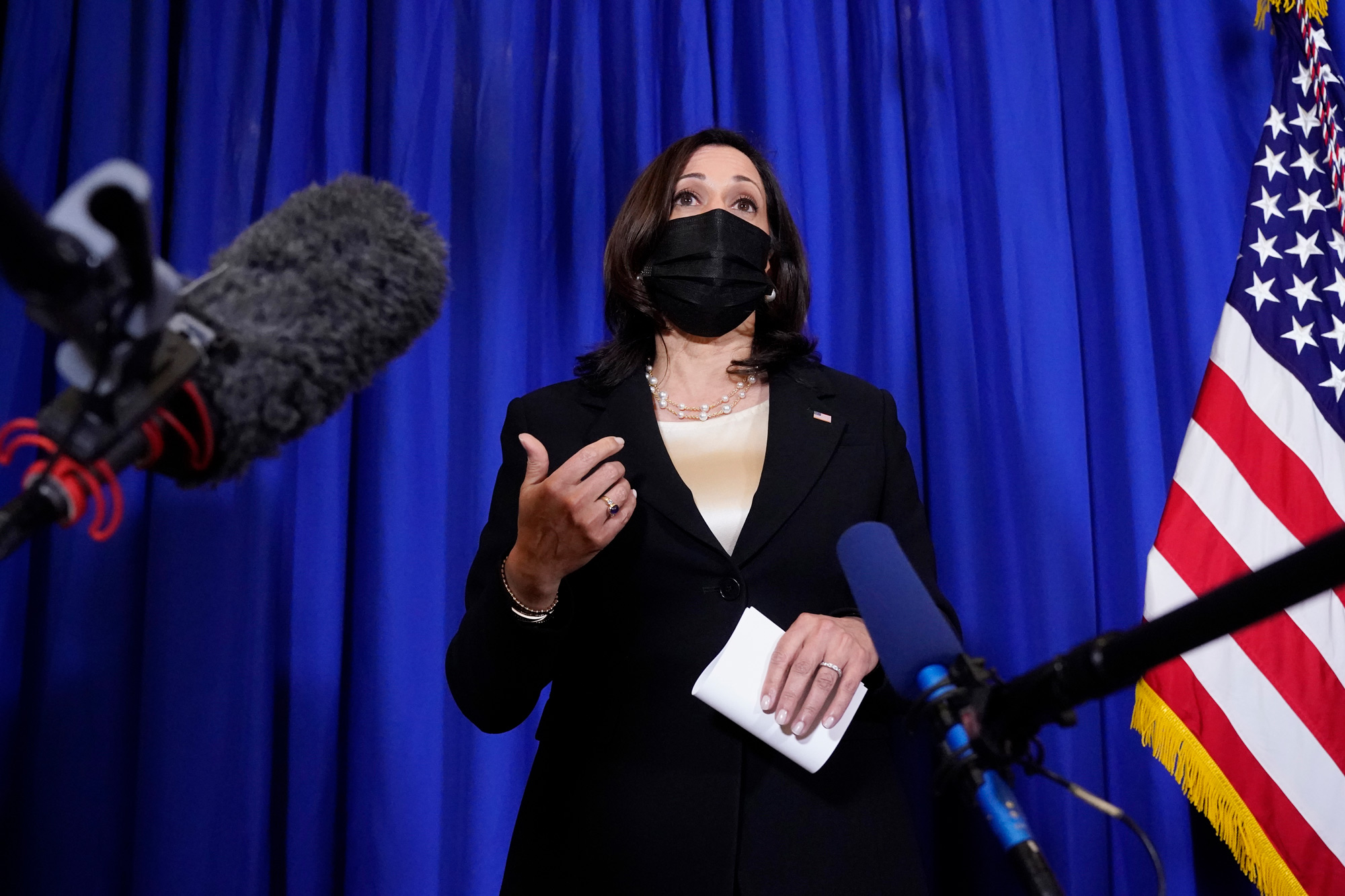
Vice President Kamala Harris said she talked to Mexican President Andrés Manuel López Obrador about “our shared interest in security, vaccines and the pandemic, what we need to do on the issue of migration,” and “mutual interests in economic strength and security,” when the two leaders met in Mexico City today.
During an unscheduled statement to the press pool, Harris said she made clear that the US considers Mexico to be a “partner on many of these issues,” and that the countries have agreed to combine “resources targeted at Central America and in particular the countries of El Salvador, Honduras, and Guatemala.”
“The country of Mexico and the United States understand that we share a border. We have familial relationships. We have a shared history. And if we are going to be successful with the issues that not only challenge us, but that create opportunities within North America, this relationship is an important one and we and we should work at it, to make sure that we continue to stay in touch,” Harris said.
She also announced that Secretary of Homeland Security Alejandro Mayorkas will travel to Mexico City next week to “follow up on the conversations we’ve had today.”
A look back at Harris’ past experience working with the region
From CNN’s Priscilla Alvarez, Maeve Reston and Jasmine Wright
Vice President Kamala Harris left for Latin America on Sunday under intense political pressure to stem the flow of migrants to the US, with lots of people asking what she was doing heading out on her first foreign trip as vice president before releasing a comprehensive strategy.
The answer, according to people close to her, is that she’s putting in the leg work to help inform the administration’s strategy — and her own — for dealing with the tough assignment she’s been handed.
Harris’ critics have questioned her credentials for this portfolio, but she has dealt with immigration and human trafficking issues — as well as efforts to root out transnational organized crime — throughout her various roles in government. And she brings an unusual perspective to the vice president’s office, coming from a border state that has welcomed immigrants and passed laws to protect undocumented immigrations from federal immigration officials.
One of the first trips she took as attorney general of California was to Calexico to tour a drug smuggling tunnel along the California-Mexico border. In 2014, she led a bipartisan delegation of state attorneys general to Mexico, striking an agreement with leaders there to enhance information-sharing on the activities of transnational gangs and participate in joint training sessions on money laundering.
While trying to forge collaborations with those partners, she was “obsessed” with ensuring they understood that she was talking “with them,” and “not to them,” said Jeff Tsai, who was one of Harris’ closest advisers when he worked as special assistant attorney general of California between 2013 and 2015.
Harris also believed that one of her greatest strengths as attorney general was the “power to convene” – the ability to summon people with disparate interests into one room to solve a problem when she had limited government resources to spare. She used that approach in 2014, when she dialed up the managing partners at some of the biggest law firms in the country asking them to send representatives to a meeting at her office. She and her team helped pair up these representatives with immigrant advocacy groups to expand the legal representation of unaccompanied minors from Central America who were streaming across the border.
One former adviser recalled how she persuaded lawyers assembled in her office to commit to a certain number of hours of pro bono work by walking them through the harrowing experience those children had coming across the border alone — which she had learned about firsthand during visits with advocacy groups — and then laid out “the very stark differences in outcome for those children who have representation and those who don’t.”
Here’s what Harris’ office said about today’s meeting with Mexico’s president
From CNN’s Nikki Carvajal
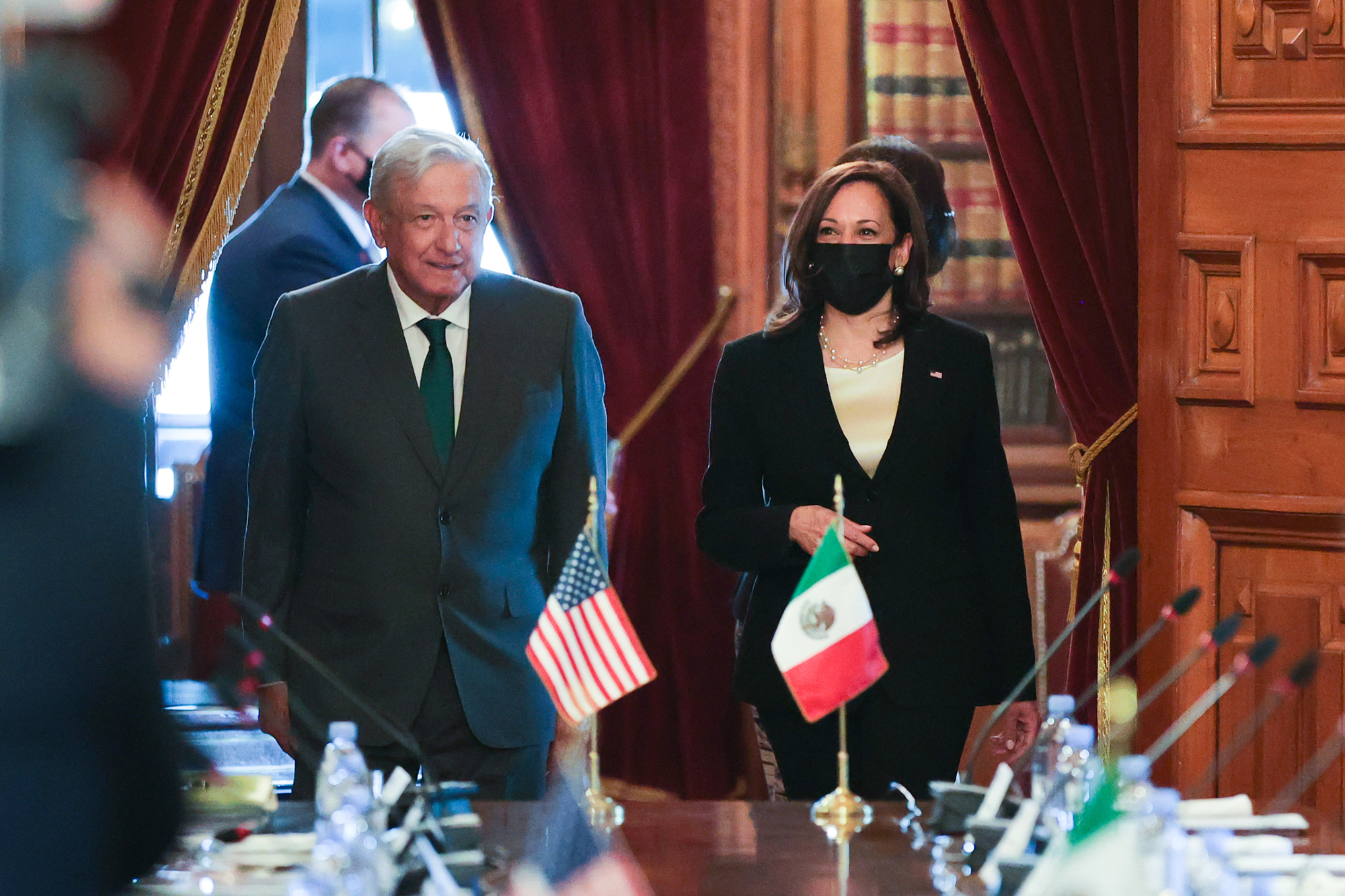
Vice President Kamala Harris and Mexican President Andrés Manuel López Obrador “agreed to expand high-level collaboration on bilateral economic and security issues and affirmed a new partnership to work jointly in Central America to address the root causes of migration” during a bilateral meeting on Tuesday, the vice president’s office said.
In addition to several economic investments, including loans for affordable housing and “Mexican workers’ protections and the implementation of Mexico’s historic labor reform,” the two countries also “committed to partner together to address the shared priority of disabling human trafficking and human smuggling organizations that prey on vulnerable individuals,” according a readout of the meeting, provided by the vice president’s office.
On immigration, “the United States joined Mexico in a new strategic partnership to share information and strategies and co-manage new programs to foster economic opportunity through agricultural development and youth empowerment. The two leaders also agreed to increase cooperation to further secure our borders and ensure orderly immigration.”
White House says Harris may visit border “at some point,” but is focused on tackling root causes of migration
From CNN’s Nikki Carvajal and Kate Sullivan
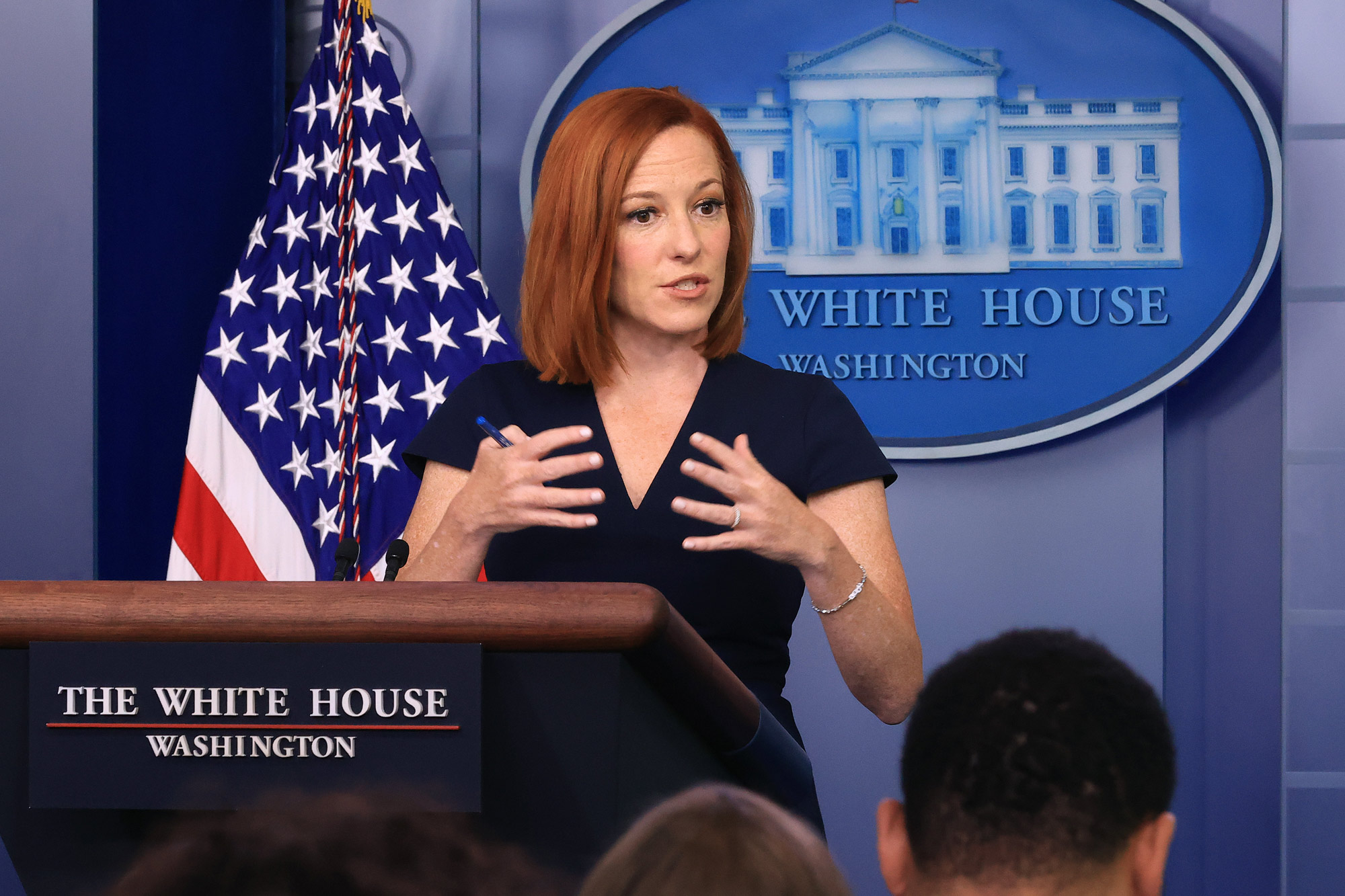
White House press secretary Jen Psaki said Tuesday she expects Vice President Kamala Harris will travel to the border “at some point,” but said the vice president is currently focused on addressing root causes of migration in Central America.
“What her focus has been, what the assignment is specifically, is to work with leaders in the Northern Triangle. She’s on a trip doing exactly that, exactly what the President asked her to do,” Psaki said.
“Her focus of this trip is on meeting with leaders, having a discussion about how to address corruption, how to address the root causes, how to work together to address humanitarian challenges in these countries. That’s exactly what she’s doing on the ground and I’m sure she’ll report back to the President when she returns,” Psaki added.
The vice president met with Guatemalan President Alejandro Giammattei on Monday, and on Tuesday flew to Mexico to meet with Mexican President Andrés Manuel López Obrador.
Some background: Harris pushed back on criticism that she hasn’t visited the US-Mexico border in an interview that aired on Tuesday by arguing that her travel has been limited during the early days of the Biden administration.
In an interview that took place in Guatemala during Harris’ first foreign trip since taking office, NBC’s Lester Holt asked Harris whether she had plans to visit the US Southern border.
“At some point, you know, we are going to the border,” Harris said. “We’ve been to the border. So this whole, this whole, this whole thing about the border. We’ve been to the border. We’ve been to the border.”
Holt responded, “You haven’t been to the border.”
“I, and I haven’t been to Europe. And I mean, I don’t — I don’t understand the point that you’re making,” Harris said with a laugh. She added, “I’m not discounting the importance of the border.”
Harris has been tasked by the President to lead efforts to stem the flow of migration from Central America, and has sought to clarify that managing the southern border is not part of that assignment. Her comments come as GOP critics have tried to make Harris the face of the Biden administration’s response at the border, where a record number of unaccompanied children crossed into the US this spring.
“I care about this and I care about what’s happening at the border. I’m in Guatemala because my focus is dealing with the root causes of migration,” Harris said. “There may be some who think that that is not important, but it is my firm belief that if we care about what’s happening at the border, we better care about the root causes and address them.”
Republicans criticized Harris for her answer, pointing to her laugh when answering the question as disrespectful.
Harris says US and Mexico are “embarking on a new era” in bilateral remarks
From CNN’s Jasmine Wright with Nikki Carvajal in Mexico City
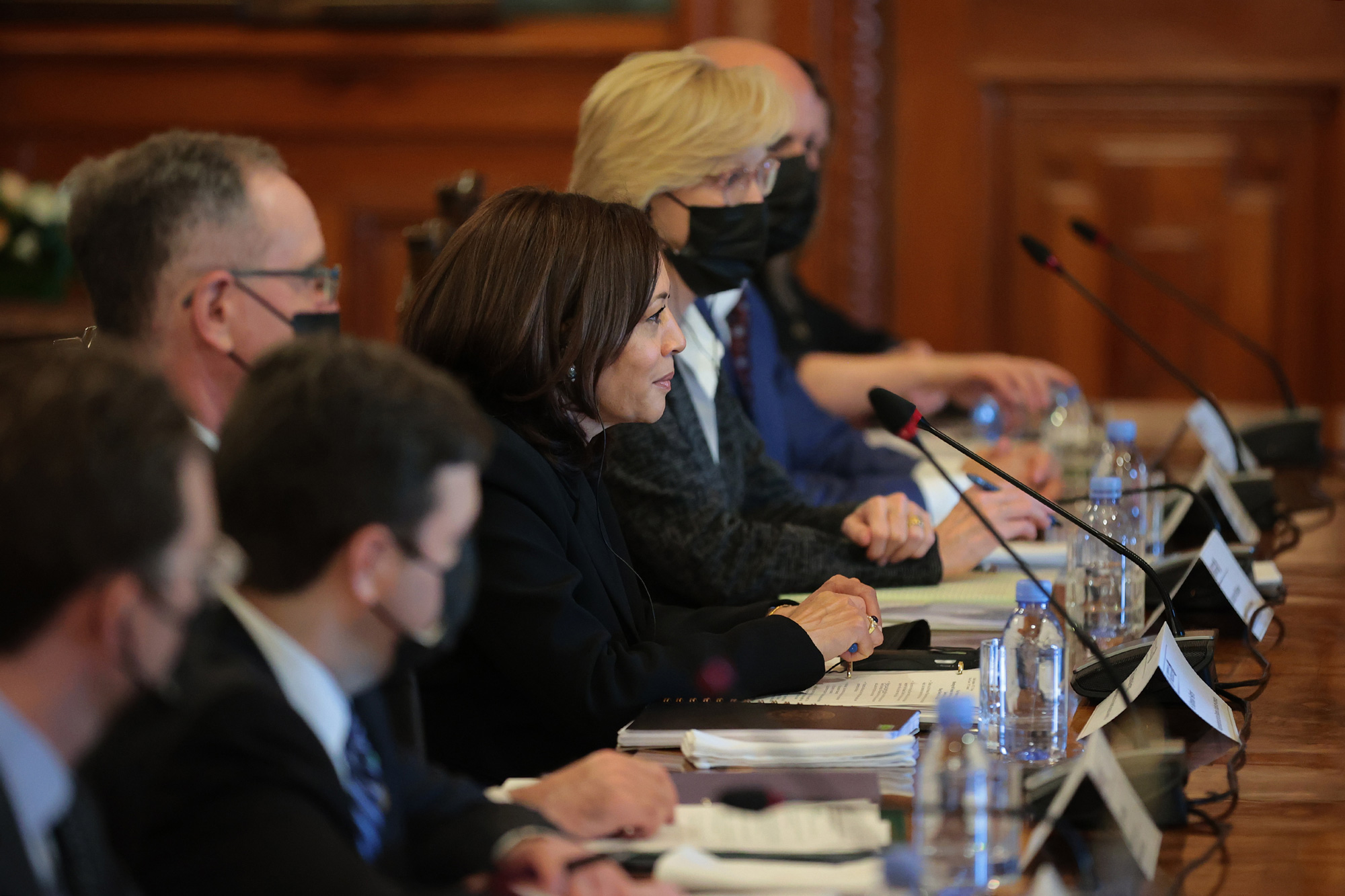
Vice President Kamala Harris said she strongly believes the US and Mexico are “embarking on a new era,” which makes clear the interdependence and interconnectedness between countries, in brief remarks pool reporters were able to witness before being removed from the room, during the in-person bilateral meeting with Mexico’s President Andrés Manuel López Obrador.
The Mexican president spoke first, in Spanish, and neither side provided pool reporters with a translation.
Harris, speaking without a mask, offered pleasantries — saying while she had enjoyed their many previous conversations, “I have most enjoy being able to see you and talk with you in person.” López Obrador was also not wearing a mask, but others seated at the table were.
“As you have said, the United States and Mexico have a longstanding relationship based on family,” shared borders and shared history, Harris added.
According to Harris’ office, the vice president met with López Obrador privately for 30 minutes before the bilateral meeting. The bilateral meeting lasted one hour, and both leaders met privately again for about 40 minutes.
Here’s a look at the latest border figures — and what is fueling US-bound migration
From CNN’s Priscilla Alvarez and Natasha Bertrand
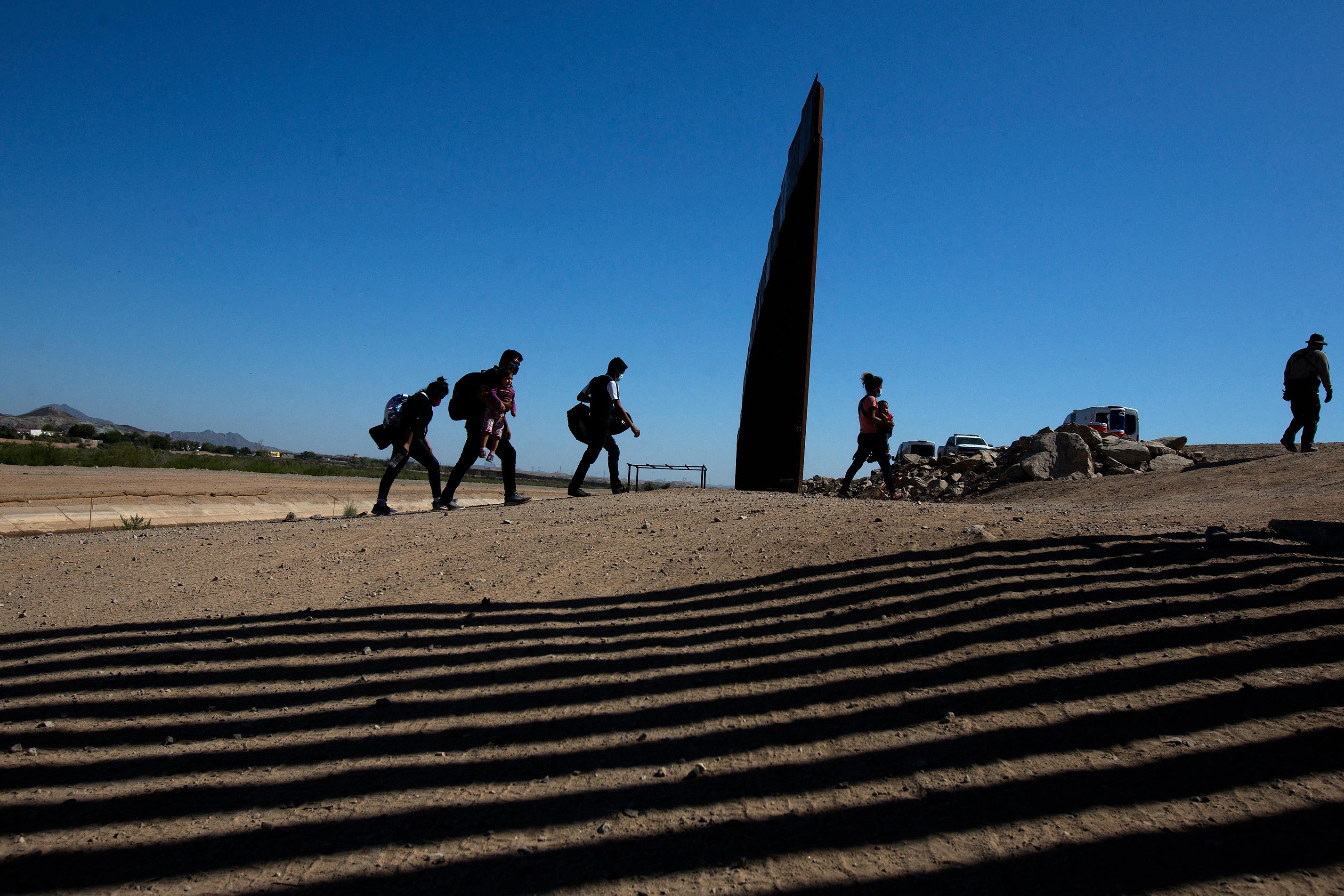
Tens of thousands migrants from Central America arrive at the US-Mexico border monthly. In April, of the 178,622 migrants encountered by US Customs and Border Protection, 79,190, or roughly 44%, were from El Salvador, Guatemala and Honduras, according to the agency’s data, the very countries where Vice President Kamala Harris is supposed to be addressing migration to the US.
The number of migrant encounters in April represented a slight increase over March for the highest one-month total in two decades, though fewer unaccompanied children arrived. According to Customs and Border Protection, 17,171 unaccompanied migrant children were encountered in April, down from nearly 19,000 in March.
While the number of arrests increased by 3% overall in April, the majority — more than 110,000 — were of single adults subject to quick expulsion to Mexico or their home countries under a Trump-era pandemic emergency rule.
The pandemic has taken a dramatic toll on Latin America, where Covid-19 cases and deaths soared and economies once projected to grow have been decimated. The region was also hit with two devastating hurricanes last year.
The decline in economic growth in 2020, according to the Congressional Research Service, is expected to worsen income inequality and poverty in the region. That, combined with pent-up demands and the perception of the Biden administration being more lenient, has fueled people trying to cross the US-Mexico border.
The Biden administration assigned roles early on to tackle migration, including Roberta S. Jacobson, who was appointed as a special assistant to the President and was a key official dealing with migrants at the US-Mexico border until stepping down in April.
The administration also assigned a Northern Triangle special envoy, a position held by Ricardo Zúñiga, who frequently travels to the region.
Harris’ role — which mimics that of Biden under President Barack Obama — is intended to target what’s driving people to the US.
Harris, thought to be a leading Democratic candidate for the 2024 presidential race should Biden not run for reelection, has not shied away from the tough assignment and is engaged and dedicated to her new role, sources told CNN.
But she and her staff appeared wary of becoming a scapegoat for Republicans for any and all problems at the southern border — a not-unfounded concern, especially after GOP lawmakers photoshopped her face onto a milk carton and accused her of being “missing” at the border.
Harris and Mexican president witness signing of memo of understanding ahead of bilateral meeting
From CNN’s Nikki Carvajal and Kate Sullivan
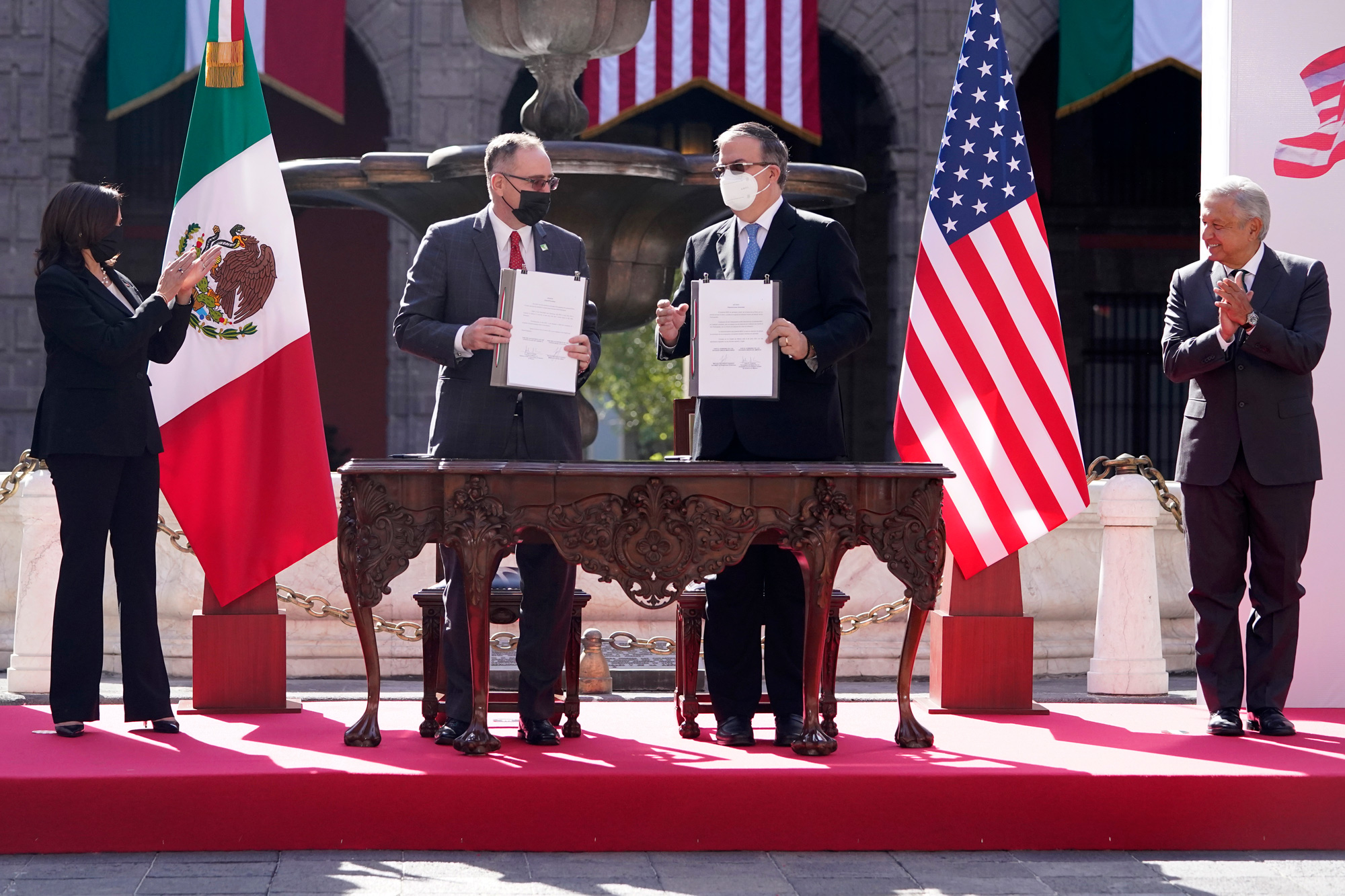
Vice President Kamala Harris and Mexican President Andres López Obrador witnessed the signing of a “memorandum of understanding” between both countries to “establish a strategic partnership to cooperate on development programs in the Northern Triangle,” according to the White House schedule.
López Obrador responded to a shouted question from a reporter who asked if he would increase assistance on immigration enforcement.
He responded, saying through an interpreter, that he would “be speaking to the vice president.”
“We are very pleased to have her here and we will be touching on that subject, but always addressing the fundamental root causes,” the Mexican president said, before the two leaders walked away together.
Both leaders will hold a bilateral meeting later this morning, and the vice president will participate in a conversation with female entrepreneurs, hold a roundtable with labor workers and greet US mission Mexico staff.
Some more context on the VP’s trip: Harris is facing the first major diplomatic test of her vice presidency, and her trip to Guatemala and Mexico underscores the Biden administration’s heightened focus on Central America and migration from the region. The vice president met with Guatemalan President Alejandro Giammattei on Monday.
The vice president and her staff have made it clear that they want to focus narrowly on diplomatic efforts in Mexico and the Northern Triangle countries of Guatemala, Honduras and El Salvador, where they believe they are more likely to achieve tangible results in addressing the root causes of migration, like economic despair, according to two White House officials familiar with the dynamic.



